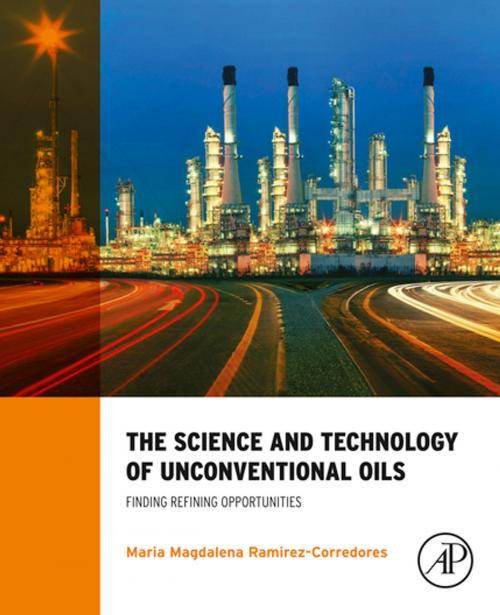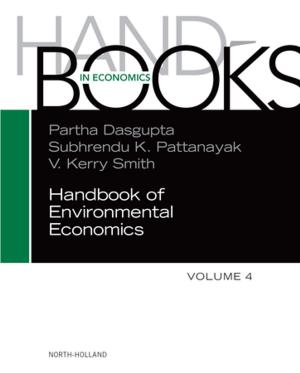The Science and Technology of Unconventional Oils
Finding Refining Opportunities
Nonfiction, Science & Nature, Technology, Petroleum, Power Resources| Author: | M. M. Ramirez-Corredores | ISBN: | 9780128013397 |
| Publisher: | Elsevier Science | Publication: | May 18, 2017 |
| Imprint: | Academic Press | Language: | English |
| Author: | M. M. Ramirez-Corredores |
| ISBN: | 9780128013397 |
| Publisher: | Elsevier Science |
| Publication: | May 18, 2017 |
| Imprint: | Academic Press |
| Language: | English |
This book, The Science and Technology of Unconventional Oils: Finding Refining Opportunities, intends to report the collective physical and chemical knowledge of unconventional oils (heavy, extra-heavy, sour/acid, and shale oil) and the issues associated with their refining for the production of transportation fuels. It will focus on the discussion of the scientific results and technology activities of the refining of unconventional oils. The presence of reactive and refractory compounds and components that negatively impact refining processing (the "bad actors") are discussed and analyzed. The commercially available technologies, with their reported improvements and emerging ideas, concepts, and technologies, are described. This comprehensive overview constitutes the basis for establishing technology gaps, and in return sets the science and technology needs to be addressed in the future. In summary, this book incorporates the relevant knowledge of processing unconventional crude oils and of the "Bottom-of-the-Barrel" fraction, describing the related commercially available and emerging technologies to contribute to the identification of existing gaps.
- Relates physicochemical properties and phenomenological behavior of unconventional oils to refining challenges
- Describes commercially available technologies and the problems they solve
- Lists recent improvements in various processes and identifies technology gaps
- Explains emerging new refining technologies and the problems they solve
- Discusses future needs and challenges, and suggests further research and development needs
This book, The Science and Technology of Unconventional Oils: Finding Refining Opportunities, intends to report the collective physical and chemical knowledge of unconventional oils (heavy, extra-heavy, sour/acid, and shale oil) and the issues associated with their refining for the production of transportation fuels. It will focus on the discussion of the scientific results and technology activities of the refining of unconventional oils. The presence of reactive and refractory compounds and components that negatively impact refining processing (the "bad actors") are discussed and analyzed. The commercially available technologies, with their reported improvements and emerging ideas, concepts, and technologies, are described. This comprehensive overview constitutes the basis for establishing technology gaps, and in return sets the science and technology needs to be addressed in the future. In summary, this book incorporates the relevant knowledge of processing unconventional crude oils and of the "Bottom-of-the-Barrel" fraction, describing the related commercially available and emerging technologies to contribute to the identification of existing gaps.
- Relates physicochemical properties and phenomenological behavior of unconventional oils to refining challenges
- Describes commercially available technologies and the problems they solve
- Lists recent improvements in various processes and identifies technology gaps
- Explains emerging new refining technologies and the problems they solve
- Discusses future needs and challenges, and suggests further research and development needs















